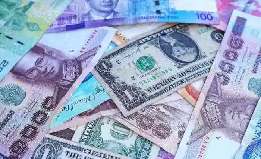India’s foreign exchange reserves increased by USD 7.023 billion, reaching a fresh record high of USD 681.688 billion, during the week that ended on August 23, according to data released by the Reserve Bank of India. The previous record high was USD 674.919 billion.
The reserves have been on an upward trend for some time. In 2024 alone, they have risen by approximately USD 60 billion cumulatively. This buffer of foreign exchange reserves helps insulate domestic economic activity from global shocks.
According to the latest data from the RBI, India’s foreign currency assets (FCA), the largest component of forex reserves, rose by USD 5.983 billion to USD 597.552 billion. Gold reserves during the week increased by USD 893 million, bringing the total to USD 60.997 billion. As per estimates, India’s foreign exchange reserves are now sufficient to cover about a year of projected imports.
In the calendar year 2023, India added about USD 58 billion to its foreign exchange reserves. In contrast, India’s forex reserves saw a cumulative decline of USD 71 billion in 2022. Forex reserves, or foreign exchange reserves (FX reserves), are assets held by a nation’s central bank or monetary authority.
These are generally held in reserve currencies, typically the US Dollar and, to a lesser extent, the Euro, Japanese Yen, and Pound Sterling. The RBI closely monitors the foreign exchange markets and intervenes only to maintain orderly market conditions, aiming to contain excessive volatility in the exchange rate without reference to any pre-determined target level or band.
The RBI frequently intervenes in the market through liquidity management, including the sale of dollars, to prevent a steep depreciation of the rupee.



